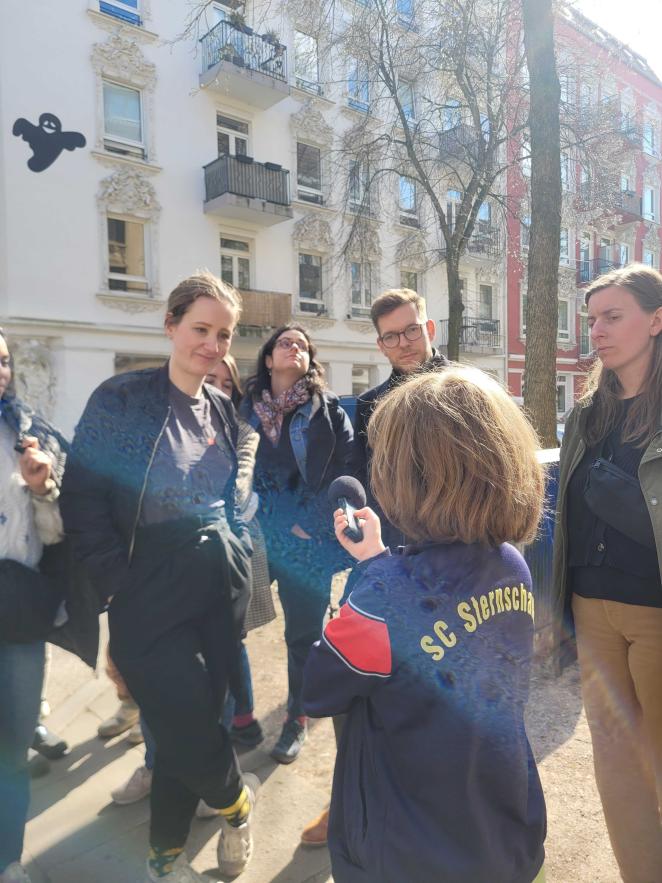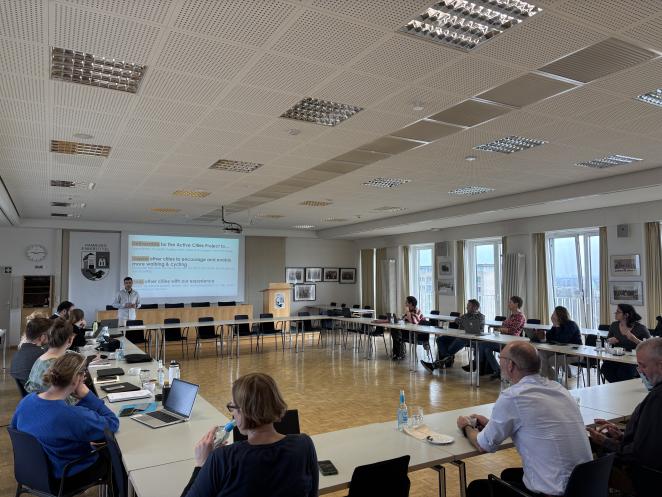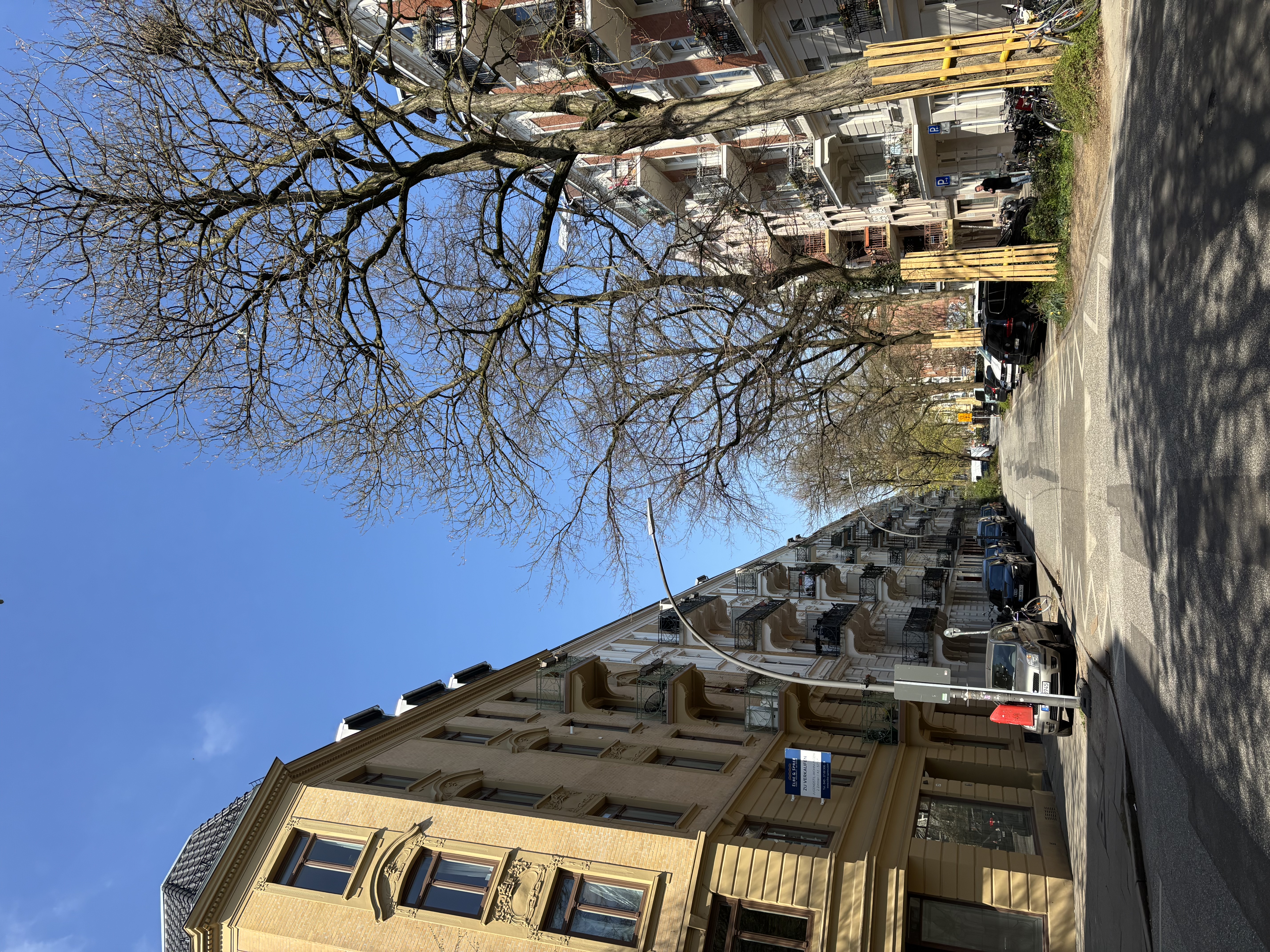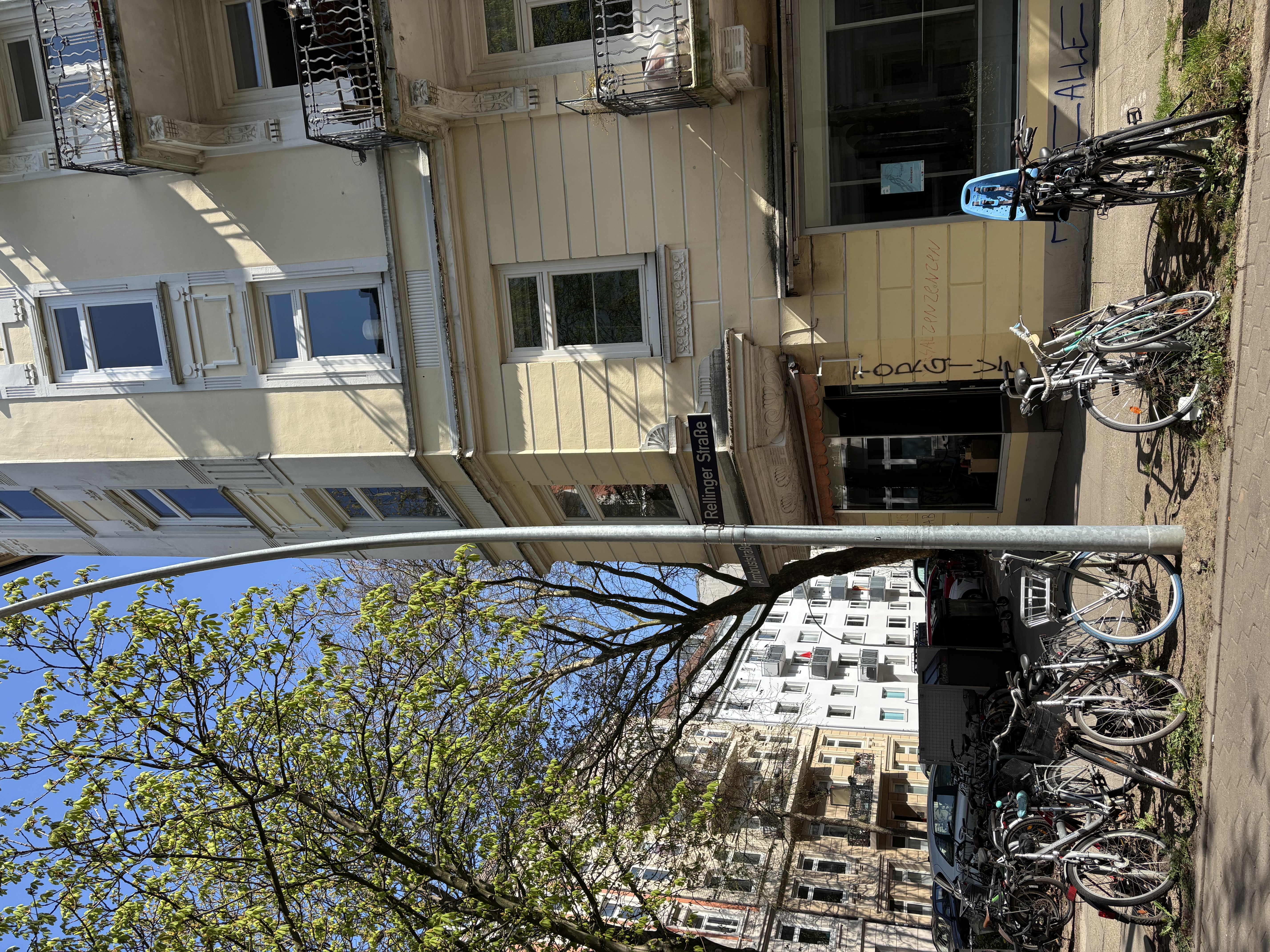The Active Cities project partners came together again recently for the project’s 6th partner meeting, hosted by the Hamburg district of Eimsbüttel.
As the project enters its final year, the meeting had several key objectives:
- Gain insights into mobility around schools and understand Hamburg's approach
- Begin planning the evaluation of our cities’ pilot activities
- Strategise for the future by considering policy recommendations, our impact, and the post-Active Cities phase

The meeting kicked off at the Rellingerstraße, Eimsbüttel’s pilot site street where a school bearing the same name is located. In Active Cities, the Eimsbüttel team has focused their efforts on creating school streets that promote active mobility. Since 2022, they have been working closely with pupils, parents, school staff, and local residents to co-create the design of safer, more engaging streets for children.
Partners had the opportunity to meet some of the pupils who were directly involved in the co-creation process. The pupils shared their experiences (in English!) about walking to school, highlighting the importance of a safer, more enjoyable environment. The streets, often dominated by (parked & moving) cars, can be unsafe for children, who may be difficult for drivers to see, while the space is far from engaging when mostly taken over by parked vehicles.
In an inspiring moment, the children interviewed Active Cities partners for their local radio station, expressing their excitement about meeting representatives from various cities involved in the project.
The second day featured presentations by Johannes Gerdelmann on Hamburg Eimsbüttel's commitment to improving school mobility, and by Susanne Elfferding on the city-state government's ongoing efforts to enhance walkability across Hamburg. City partners shared updates and progress reports on the different pilots, including developments in activity tracks, safe parking, temporary street markings and engagement of both children and elderly citizens.
In the afternoon, knowledge partners delivered workshops to plan evaluation methods of the pilot activities together with cities.

The final day was all about reflecting on the project's outcomes and future. As the December conclusion of Active Cities begins to appear on the horizon, discussions turned to next steps, such as compiling lessons learned into policy recommendations and considering the future beyond the project.
With only a few months remaining, the Active Cities partners are now focused on completing their pilots, evaluating them, and extracting key learnings to share with as many stakeholders as possible, both within the North Sea Region and beyond.
Our next partner meeting will bring us to Groningen, in The Netherlands, at the end of October. Until then, stay up to date with the latest project developments on our LinkedIn.


